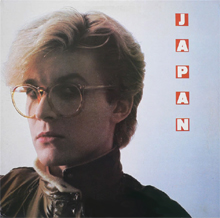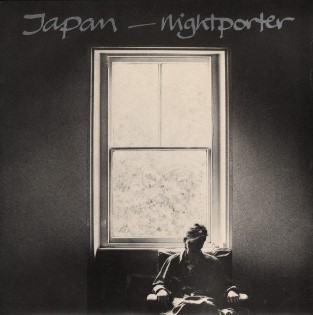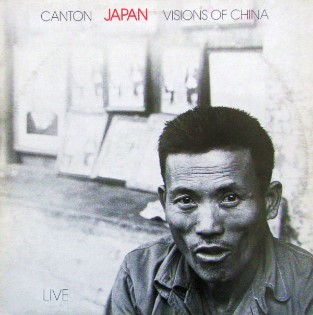
Japan were an English new wave band formed in 1974 in Catford, South London by David Sylvian, Steve Jansen (drums) and Mick Karn, joined the following year by Richard Barbieri (keyboards) and Rob Dean. Initially a glam rock-inspired band, Japan developed their sound and androgynous look to incorporate art rock, electronic music and foreign influences.

Andonis Michaelides, better known as Mick Karn, was an English-Cypriot musician and songwriter who rose to fame as the bassist for the art rock/new wave band Japan. His distinctive fretless bass guitar sound and melodic playing style were a trademark of the band's sound.

Steve Jansen is an English musician, composer and record producer.

Tin Drum is the fifth and final studio album by English band Japan, released in November 1981 by Virgin Records. It peaked at No. 12 on the UK charts, and featured the top 5 single "Ghosts". It has received acclaim as the band's best and most original work.

Gentlemen Take Polaroids is the fourth studio album by the English band Japan, released in November 1980 by Virgin Records.

Quiet Life is the third studio album by English new wave band Japan, first released on 7 December 1979 in Canada, Japan and The Netherlands by record label Hansa and on 18 January 1980 in the UK.

Obscure Alternatives is the second studio album by English new wave band Japan, released in October 1978 by record label Hansa.

Oil on Canvas is a live album by the English band Japan, released in June 1983 by Virgin Records. It was released six months after the band had broken up, and became their highest charting album in the UK, peaking at number 5. It has been certified Gold by the British Phonographic Industry for sales in excess of 100,000 copies.

Rain Tree Crow is the sole album released by English band Rain Tree Crow, a reunion project by the members of the new wave band Japan. Recorded in 1989 and 1990 and released in April 1991, it was the first time that members David Sylvian, Mick Karn, Steve Jansen and Richard Barbieri had collaborated as a four-piece since 1982. The album peaked at number 24 on the UK Albums Chart.

Everything and Nothing is a compilation album by David Sylvian. Released in October 2000, the album contains previously released and unreleased, re-recorded, and alternate versions of tracks from Sylvian's twenty years with Virgin Records. The record peaked at no.57 in the UK albums chart.

"All Tomorrow's Parties" is a song by the Velvet Underground and Nico, written by Lou Reed and released as the band's debut single in 1966. The song is from their 1967 debut studio album, The Velvet Underground & Nico.

"Ghosts" is a song by English band Japan. It was released in edited form in March 1982 as the third single from their 1981 album Tin Drum.

The Very Best of Japan is a compilation album by the British band Japan, released worldwide in 2006 by EMI Music.

Japan is an album by the British band Japan, released in the United States in March 1982 on the Epic Records label. It was the first US release of the band's material recorded for Virgin Records in the UK, and was a combination of most of Tin Drum with three tracks from Gentlemen Take Polaroids. It was released at a time when the band was beginning to break up. Despite the group's popularity in Europe and Asia, and a cult following in the US, the album did not break into the Billboard 200 chart. However, it did peak at number 204 on the Bubbling Under the Top LPs chart.

"Nightporter" is a song by English new wave band Japan. The song originally featured on the band's fourth album Gentlemen Take Polaroids in 1980. However, it was then remixed by Steve Nye and released as a single in November 1982. The single peaked at number 29 on the UK Singles Chart.

Visions of China is a song by English new wave band Japan, released in October 1981 as the second single from their 1981 album Tin Drum, which was released on 13 November. The single reached number 32 on the UK Singles Chart.

"Cantonese Boy" is a song by English new wave band Japan, released in May 1982 as the fourth and final single from their 1981 album Tin Drum. The single peaked at number 24 on the UK Singles Chart. The song refers to the enlistment of a Cantonese boy to the Chinese Red Army.

"European Son" is a song by the British band Japan.

"Gentlemen Take Polaroids" is a song by English new wave band Japan, released as a single from the album of the same name in October 1980. It was the band's first charting single in the UK, peaking at number 60.

"Canton" is an instrumental song by English new wave band Japan. It was originally released on the album Tin Drum in 1981, and was then released as the only single from the live album Oil on Canvas in May 1983. It peaked at number 42 on the UK Singles Chart.


















